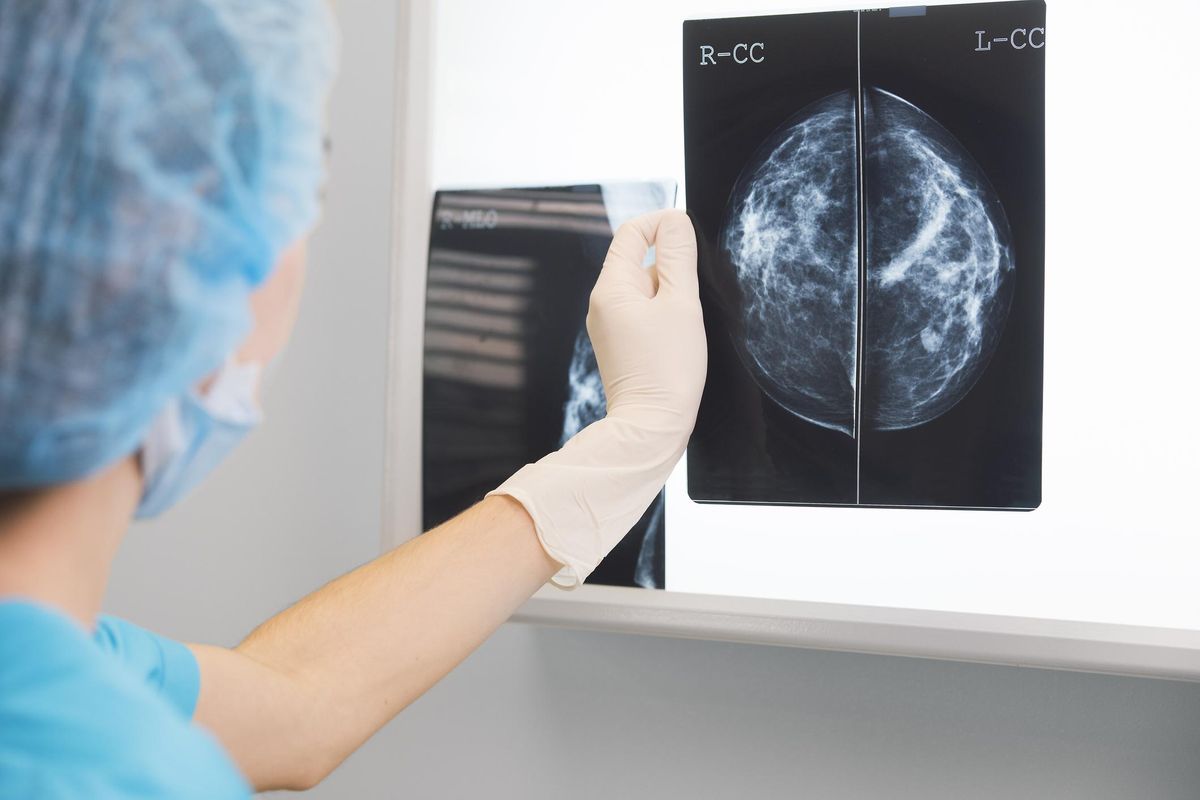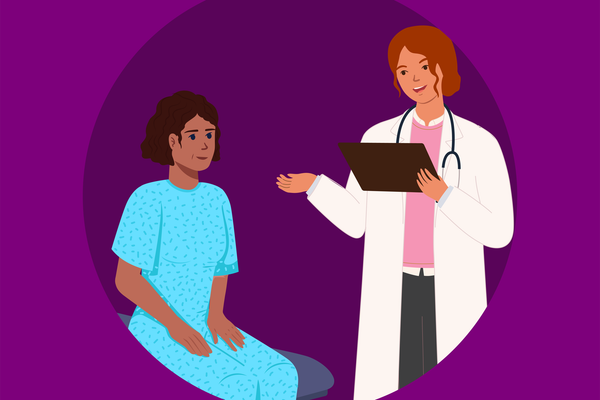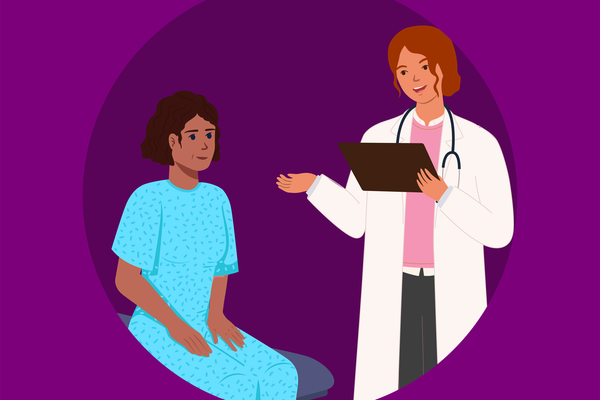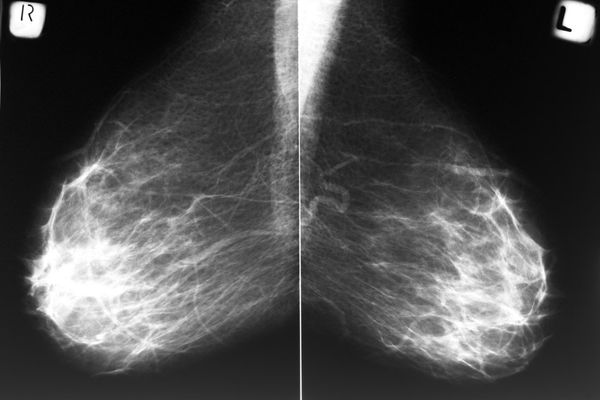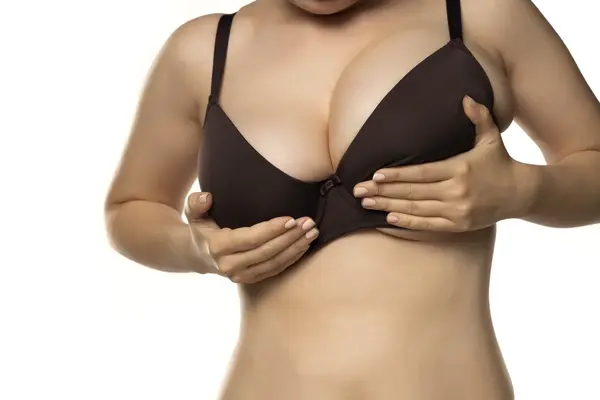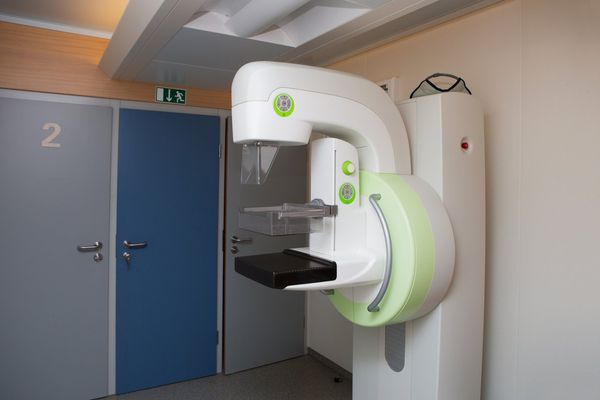A month after getting her second Covid-19 vaccine dose, Kara Grant went in for an annual breast MRI. She has the BRCA1 (breast cancer gene one) gene mutation, so she gets screened every year, so this was a routine procedure for her.
Unexpectedly, the MRI raised some concerns. Namely, Grant's left lymph nodes were enlarged. One of the signs that a cancerous mass in the breast has metastasized (spread) is the swelling of lymph nodes around the armpits or the collarbone, so this raised some red flags for her healthcare provider. She called Grant in for a mammogram, which found swollen lymph nodes again.
Thankfully, it turned out to be a false positive and was nothing to worry about. Another mammogram screening a month after her second vaccine dose cleared everything.
"My doctors said it was likely due to the vaccine. I got it in my left arm — and there have been recent studies showing similar trends," she said.
The swelling or tenderness of armpits is a normal immune system response to a vaccine, suggesting that antibodies have been activated to fight against the virus or illness a vaccine is meant to prevent. Since Covid-19 vaccines are given in the arm, the closest lymph nodes are the ones under the arm, close to the breast. And one of the signs that a mass has metastasized is swelling of lymph nodes around armpits or the collarbone.
A February 2021 study by the Society of Breast Imaging found 11% of patients who received the Moderna vaccine had swollen lymph nodes after the first dose and 16% after the second. Women who got the Pfizer vaccine also experienced similar side effects. However, so far, these concerns have not been connected to the Johnson & Johnson vaccine.
Covid-19 vaccines and mammograms
Dr. DaCarla Albright, professor of clinical obstetrics and gynecology and associate dean of student affairs and wellness at the University of Pennsylvania and a member of HealthyWomen's Women's Health Advisory Council, confirms that practitioners are seeing this trend, but she cautions that it should not keep women from getting their screenings.
"If a woman's mammogram was already significantly delayed from the beginning of the pandemic — so 2020, when the world shut down — regardless of vaccination, I would recommend that she go to her radiology center and have her mammogram done … We don't want to delay it further," Albright said.
The critical piece of advice Albright had for women is to inform physicians and radiology technicians of vaccination dates. "I would recommend that she notify the radiology center that she has been vaccinated. Also, she should inform them of the timing of her vaccination to [help them interpret] her mammogram appropriately. But that information does not guarantee that she will not be recalled, because if she does have swollen lymph nodes, it may create a false positive, and she may need additional imaging."
Mammograms before or long after receiving COVID-19 vaccines
Healthcare providers urge patients to get their mammography screenings before their first vaccine dose or four to six weeks after their second dose. However, if a woman detects a lump, has breast cancer symptoms or has received a recent abnormal screening, she shouldn't wait — she should get the mammogram as soon as possible.
Although post-vaccination lymph node swelling is common and often harmless, it's best practice to be cautious and get further screening if any abnormalities are detected.
This resource was created with support from Daiichi Sankyo and Merck.
- Is There Such a Thing As a More Comfortable Mammogram ... ›
- Overcoming the Fear of Breast Cancer - HealthyWomen ›
- Don't Postpone These Types of Preventive Care Due to Coronavirus ... ›
- Understanding the Different Types of Covid-19 Vaccines - HealthyWomen ›
- COVID-19 Vaccine Side Effects Are Rare - HealthyWomen ›

